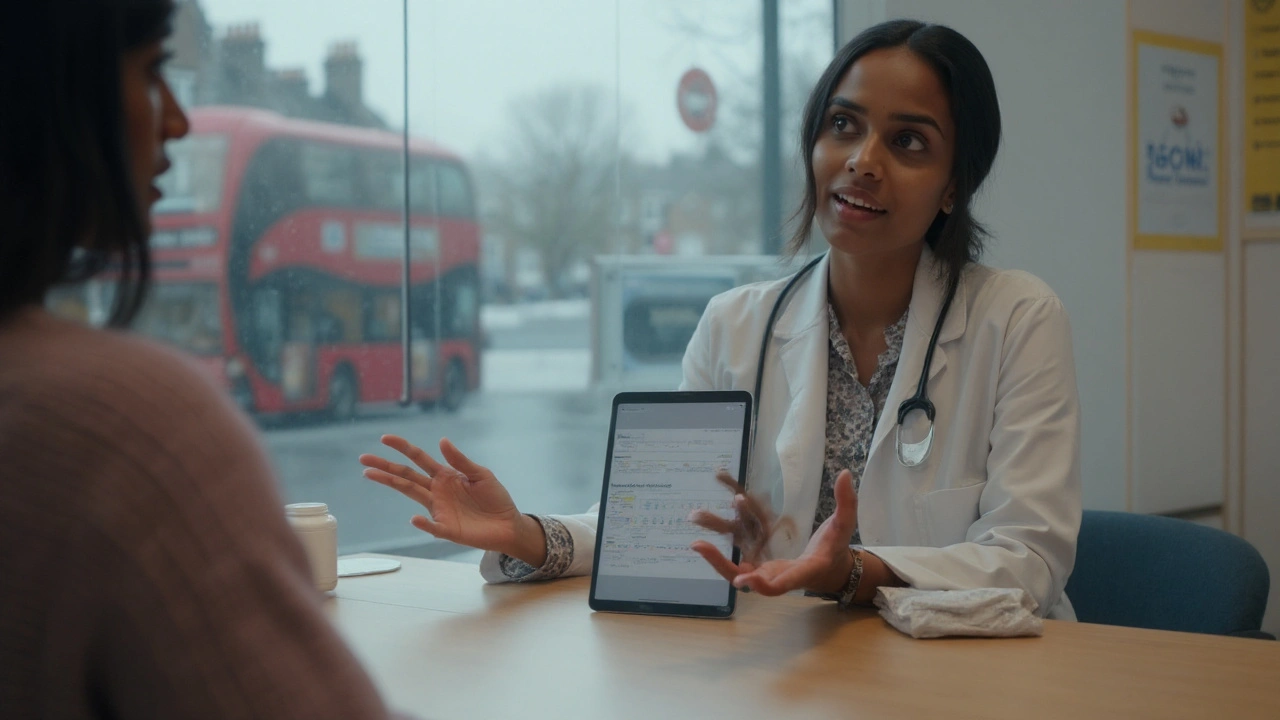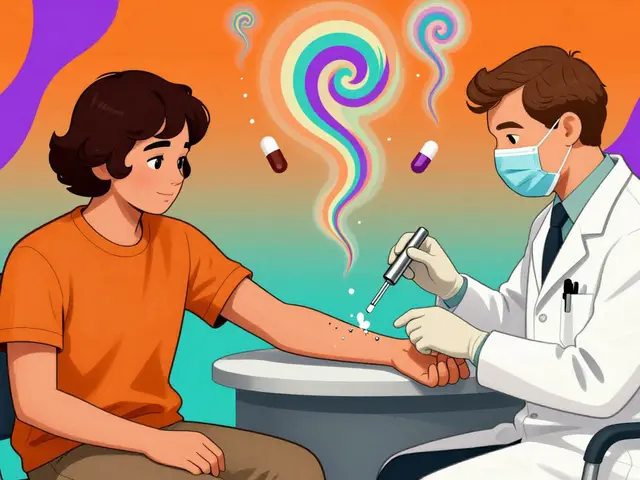
Gastroparesis – What It Is and How to Live With It
If your stomach feels like it’s stuck on slow‑motion, you might be dealing with gastroparesis. It’s a condition where the stomach can’t pump food out like it should. The result is bloating, nausea, and feeling full after just a few bites. It’s not rare, and the good news is there are ways to feel better.
Common Symptoms and When to Seek Help
The telling signs are pretty consistent: frequent nausea, occasional vomiting of undigested food, bloating that doesn’t go away, and a loss of appetite because even small meals feel heavy. Some people notice a nagging stomach pain after eating, while others get a sensation of fullness that lasts for hours. If you start throwing up food that you haven’t even finished, or if you lose weight without trying, it’s time to book an appointment. A GP can run a gastric emptying scan to confirm the diagnosis.
Don’t ignore the subtle signs. Early detection means you can start treatment before the condition worsens. Keep a short diary of what you eat, when symptoms appear, and how severe they are – it helps the doctor see patterns.
Managing Gastroparesis: Food and Medicine
Food is the first line of defense. Aim for small, frequent meals instead of three big ones. Choose low‑fat, low‑fiber options because fat and fiber slow stomach emptying. A typical day might look like a plain boiled potato, a small piece of grilled chicken, and a handful of ripe banana. Liquids are easier on the stomach, so smoothies or broth can be a good supplement.
Stay upright for at least an hour after eating. Sitting or standing helps gravity do its job and reduces nausea. Gentle walks are better than lying down right after meals.
When diet alone isn’t enough, medication can step in. Prokinetic drugs such as metoclopramide or domperidone are often prescribed to boost stomach muscle activity. Some doctors also use low‑dose erythromycin, an antibiotic that has a side‑effect of speeding up gut movement. Talk to your pharmacist about possible side effects – dry mouth and drowsiness are common, but they’re usually manageable.
If you’re on multiple meds, ask your pharmacist to check for interactions. For example, certain antidepressants can make gastroparesis symptoms worse. A quick medication review can save you a lot of discomfort.
Don’t forget hydration. Dehydration can make nausea worse, so sip water throughout the day. If you’re vomiting often, an oral rehydration solution can restore electrolytes without overloading the stomach.
Stress plays a sneaky role. Anxiety can slow gut motility, making symptoms flare up. Simple breathing exercises, short meditation sessions, or a hobby you enjoy can keep stress in check and indirectly help your stomach work better.
Lastly, stay on top of follow‑up appointments. Your doctor may need to adjust medication doses or suggest new treatments based on how you’re responding. Keeping the conversation open ensures you get the right support.
Living with gastroparesis isn’t a verdict; it’s a management plan. Small meals, smart drug choices, and a bit of lifestyle tweaking can turn a frustrating condition into something you control. Start with one change today and watch how your symptoms improve.
-
17 Sep






